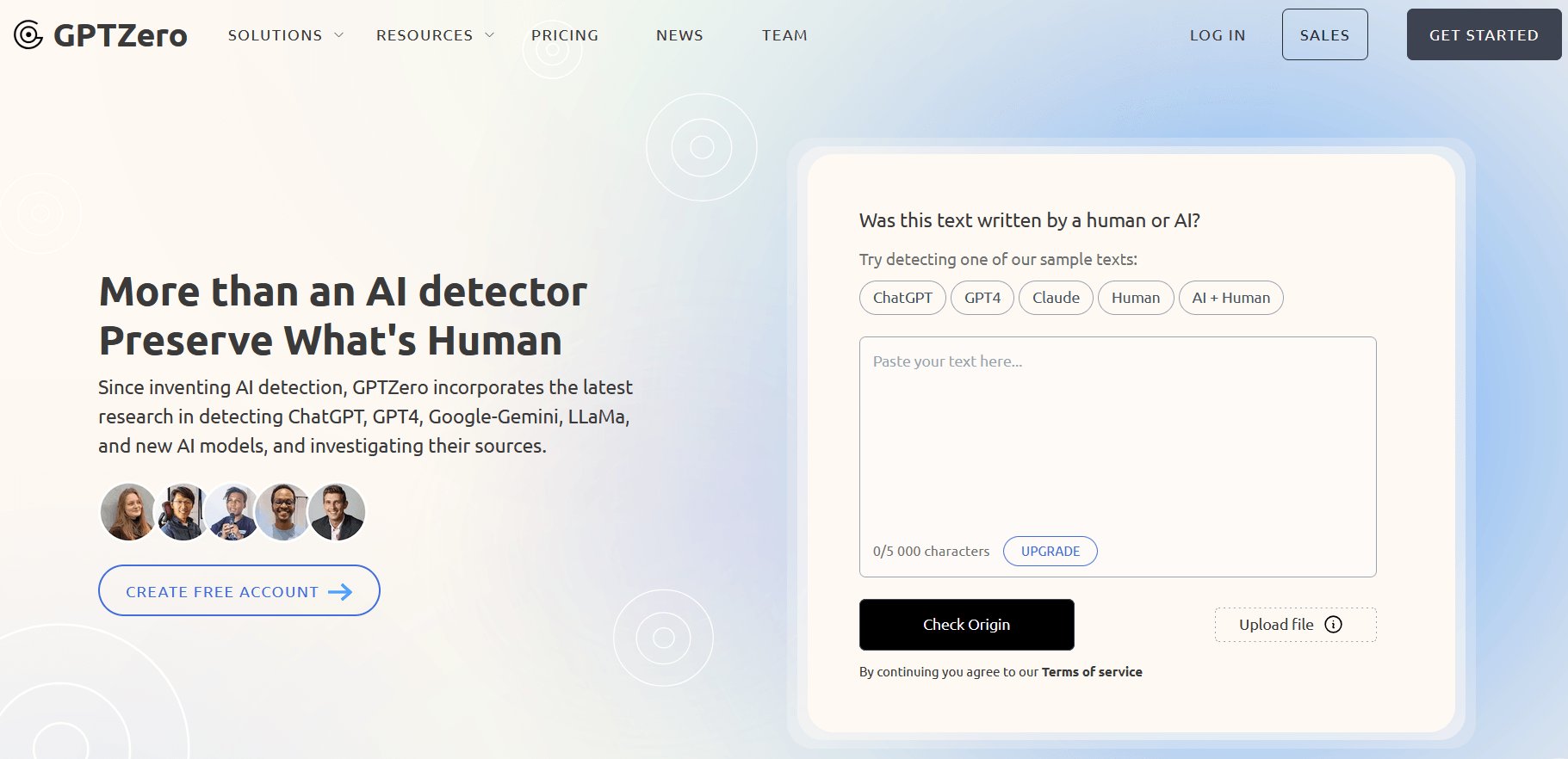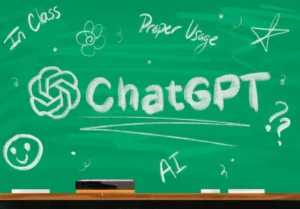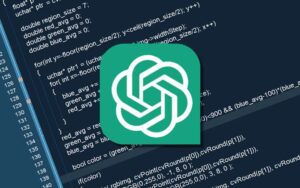A few years ago, the idea of AI stealing jobs might have sounded like a joke. Now, it’s becoming a reality. While AI chatbots like ChatGPT are often used for fun, many, including students, are using AI to generate and copy text from legitimate websites for school assignments. Fortunately, AI plagiarism checkers available online can help address this issue. To assist you, we’ve put together a list of the best AI plagiarism checkers for ChatGPT and AI-generated content.
Here’s what you need to know.
1. GPTZero
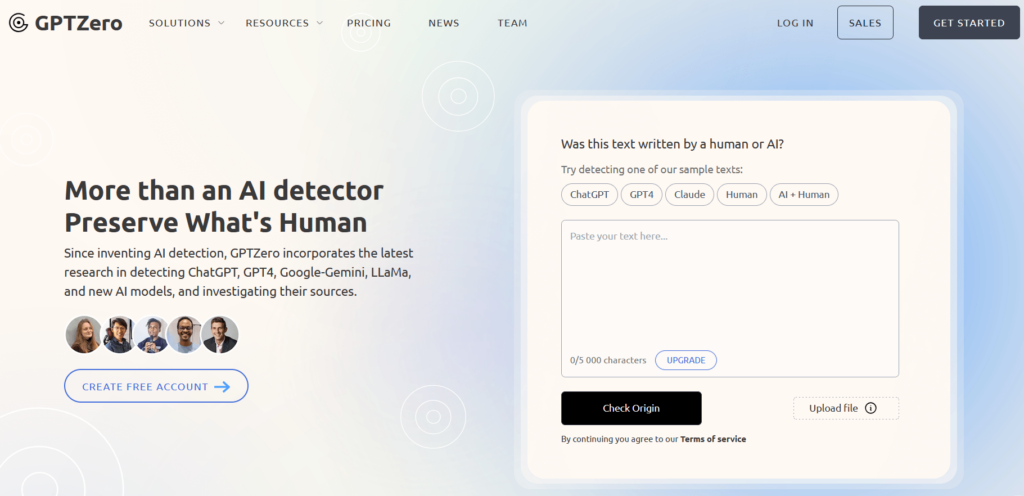
GPTZero is a popular AI plagiarism checker that many users recommend. It’s an easy-to-use tool that works well across various texts, using statistical data to determine whether the text is human-written. It also evaluates factors like perplexity and burstiness. My experience with GPTZero was mostly positive, as it effectively distinguished between human and AI-generated content. There were a few instances where it mistakenly flagged original text as AI-generated, but these were rare. I appreciated the tool’s specificity in its metrics, which is something not all tools offer. Plus, it’s completely free to use.
2. Copyleaks AI Content Detector
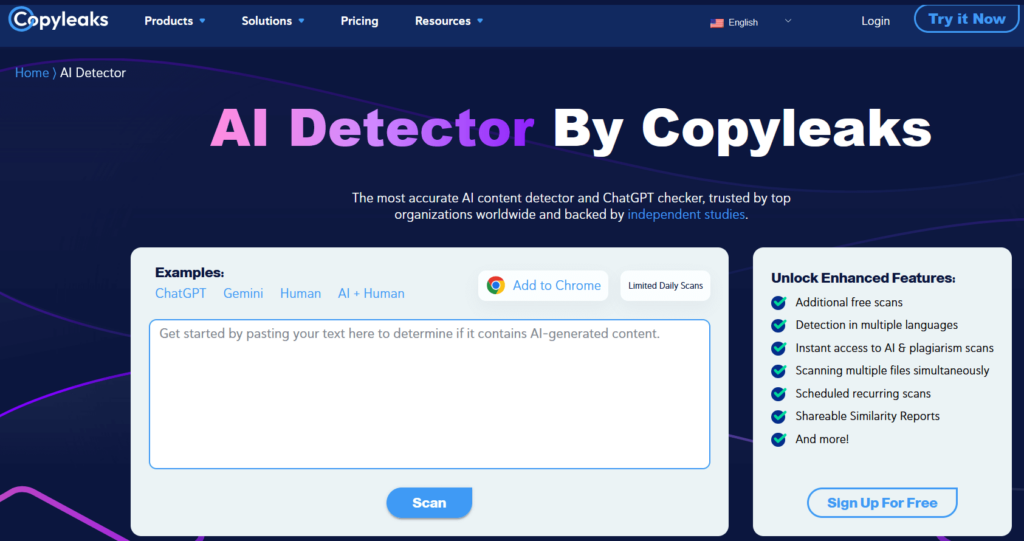
Copyleaks claims its AI plagiarism detector has a 99.12% accuracy rate in identifying whether content is AI-generated or human-written. It supports multiple languages, including French, Spanish, and German. Copyleaks uses an AI-driven approach to detect AI-generated text, allowing it to adapt alongside the latest AI chatbots. Copyleaks promises support for ChatGPT 4 when it’s released. This tool is useful for various types of content, from articles and reviews to academic papers. When I tested it on a 600-word excerpt, the tool quickly confirmed it was human-written. There’s also a convenient Chrome extension, and Copyleaks is free to use.
3. Writer AI Content Detector

Writer AI offers a plagiarism detection tool that’s great at identifying copied content. The tool is simple to use, although it has a 1,500-character limit per check. For larger texts, you’ll need to split them into parts. Alternatively, you can input a webpage URL, and the tool will extract the text for you. The tool uses a percentage meter to show whether the content is plagiarized. In my tests, it consistently distinguished between human and AI-written text. For large-scale detection, you can contact Writer AI directly.
4. Crossplag AI Content Detector
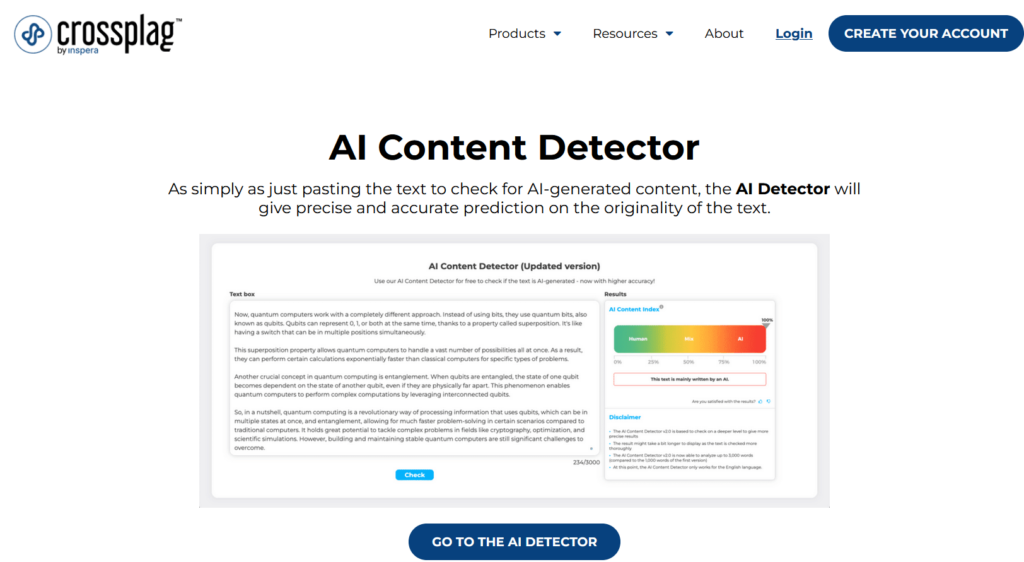
Crossplag’s AI plagiarism checker is designed to detect AI-generated text in student assignments, handling up to 1,000 words at a time. It’s built on a fine-tuned RoBERTa model using the OpenAI dataset, making it highly effective at detecting copied text. While still in the testing phase, it quickly identifies plagiarized content. In a test combining human and AI-written text, it accurately assessed the content. Crossplag aims to make this tool available to institutions but needs to expand its language support beyond English.
5. Writefull ChatGPT Detector
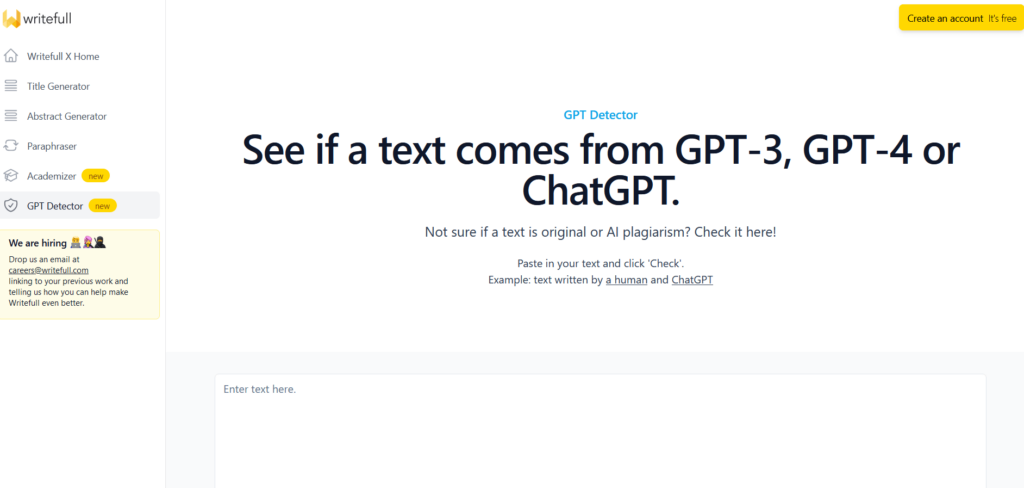
Writefull’s ChatGPT detector is a newer tool that many users rely on to identify AI-generated content. It’s easy to use and provides instant detection, making it useful for real-time checks. When I tested it with a 500-word AI-generated story and a human-written news article, the tool correctly identified each one. It uses a percentage scale to indicate the likelihood of text being AI-generated. Writefull plans to add ChatGPT 4 support soon. Although there’s a daily usage limit, Writefull’s ChatGPT detector is one of the best AI plagiarism tools currently available.
6. Winston AI
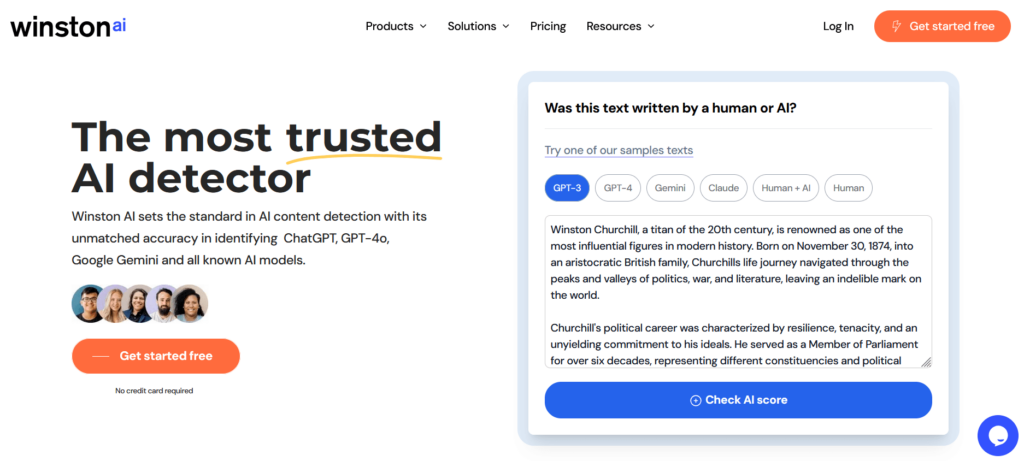
Winston AI is a powerful plagiarism checker with 99% accuracy in detecting ChatGPT content. It categorizes results into human, AI, and readability sections for easy sorting. What makes it unique is its ability to read PDF and image files as well. Using Winston is simple—just enter your text or upload the file, and start scanning for AI content. In seconds, the tool provides results, complete with an AI prediction map that highlights AI-generated and human-like text. The free plan covers 2,000 words and AI detection, while paid plans, starting at $19 per month, include plagiarism detection, handwriting support, and more.
7. CopyScape
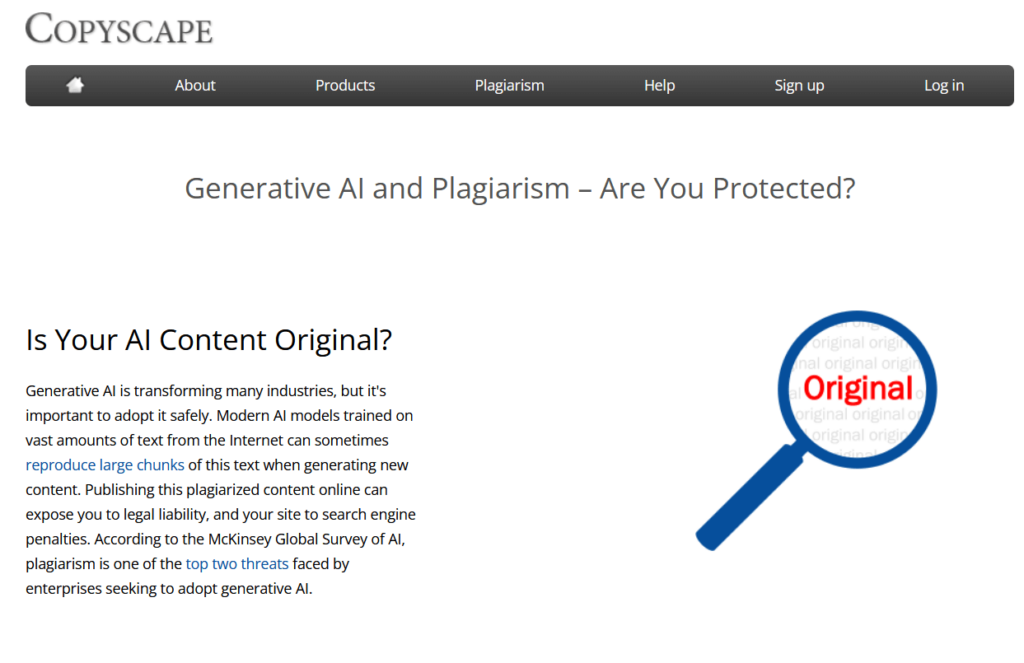
CopyScape is one of the top AI plagiarism tools, though it operates differently. Instead of scanning text inputs, it scans entire web pages for you. CopyScape searches for copies of your content online and shows the web pages that have plagiarized it. Businesses often use this tool to check if their content has been stolen, but individuals can use it too. To use CopyScape, just paste the URL of a web page, and the tool will display results similar to Google, but focused on copied content. Click on any result to see detailed information, including the word count and percentage of copied content. CopyScape is free to use for now, though it may become a paid service later.
8. Plagibot

Plagibot is an AI-powered plagiarism checker that supports various document types, including Word files and PDFs. It offers a user-friendly interface and maintains an up-to-date database by scraping the web every hour. This tool catches plagiarism and generally identifies copied content from the original source. While the website can occasionally be prone to errors, it’s rare enough not to impact usage significantly. Plagibot is not free; the free tier allows 2,000 words per month, with paid options available if you need more. Contact the company for pricing details.
9. Content at Scale
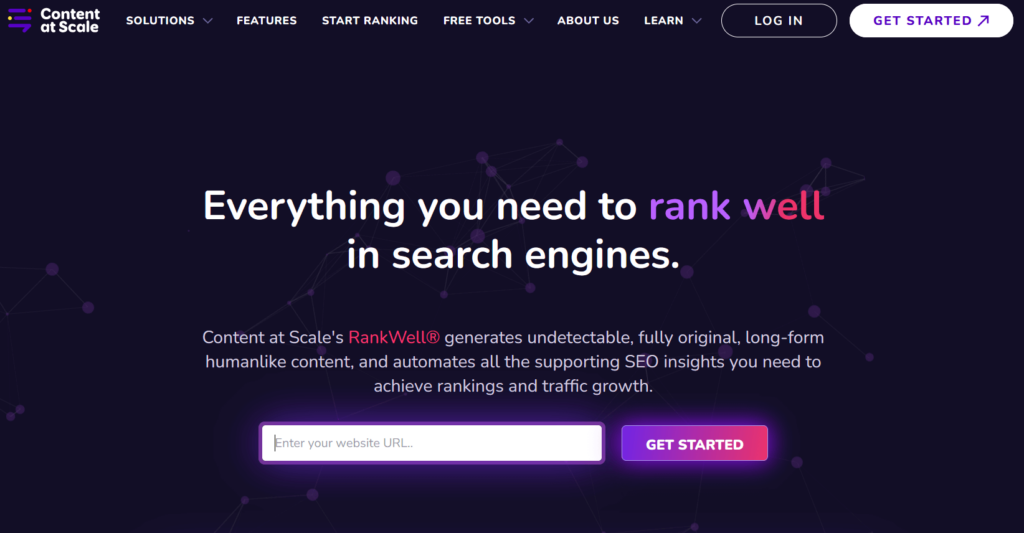
Content at Scale has been trained on billions of pages and can accurately predict the most probable word choices. It’s one of the top AI-powered tools, using a proprietary content generator with multiple layers of AI components. This allows it to thoroughly scan for AI-generated content, including ChatGPT. I tested it by mixing self-written text with ChatGPT answers, and the tool provided a detailed analysis, highlighting text in areas like predictability, probability, and pattern. It’s extremely accurate and free to use, so give it a try.
10. Grammarly
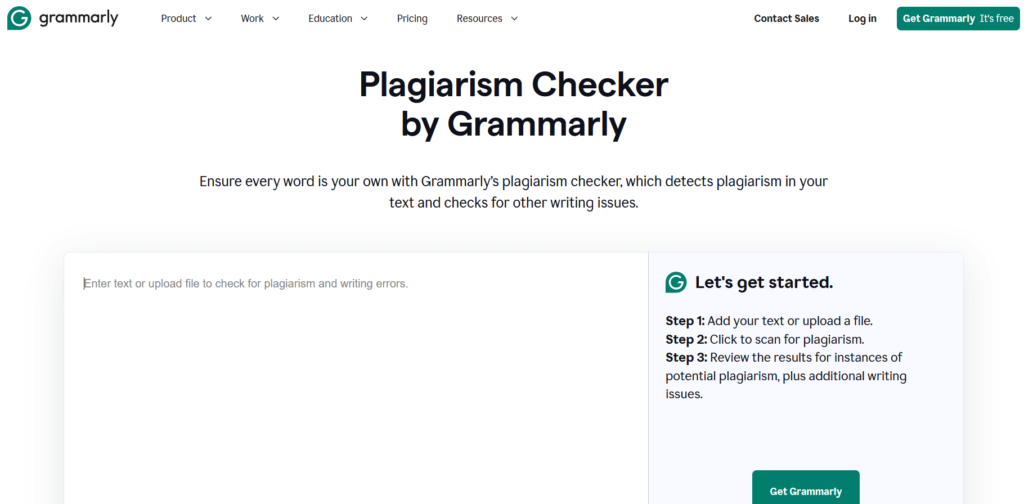
Grammarly isn’t just for checking grammar—it also quickly checks for plagiarism. It uses a combination of AI technologies like machine learning, deep learning, and natural language processing. This helps Grammarly not only improve writing but also detect copied text. However, detailed plagiarism stats are locked behind a paywall. The free version lets you know if plagiarism is detected, but upgrading to Premium, starting at $12 per month, offers more features. I tested it with several texts, and Grammarly detected plagiarism along with other issues.
These AI text detection tools will become essential in the coming months, especially for teachers and academics looking to detect plagiarized or AI-generated content. If you’re interested in AI’s potential, check out some cool things you can do with ChatGPT. Already covered those? Learn how to use ChatGPT with Siri and boost Apple’s voice assistant. Which AI plagiarism checker is your favorite? Let us know in the comments below.
